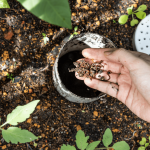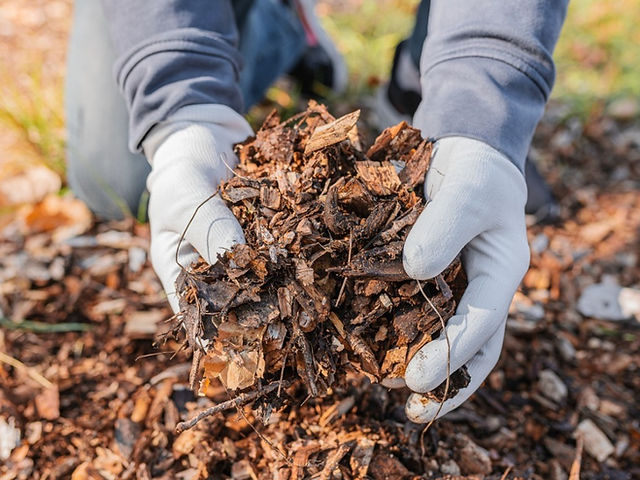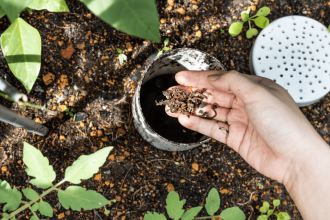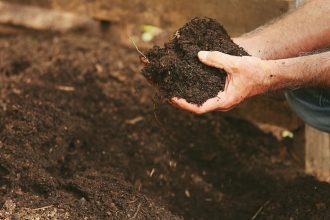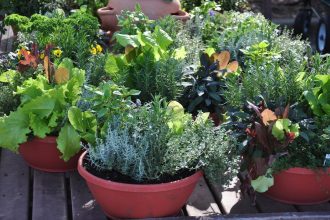In a world where sustainability is at the forefront of our minds, organic mulching stands as a beacon of environmentally friendly gardening practices. This natural method of nourishing plants and preserving soil health is more than just a trend – it is a fundamental practice that has been utilized for centuries. Let us delve into the bountiful benefits of organic mulching and discover how it can transform your garden into a thriving oasis of lush greenery.

Advantages of Using Organic Mulch in Gardening
Using organic mulch in your garden can provide a multitude of benefits for your plants and soil. One advantage is that organic mulch helps to retain moisture in the soil, reducing the need for frequent watering. This can be especially helpful during hot summer months when water evaporation is high.
Another benefit of organic mulch is that it helps to suppress weeds by blocking out sunlight and preventing weed seeds from germinating. This can save you time and effort in weeding, allowing you to focus on other aspects of gardening.
Organic mulch also breaks down over time, adding valuable nutrients to the soil and improving its overall health. This can lead to healthier, more vibrant plants that are better able to resist pests and diseases.
Improved Soil Health and Nutrient Retention
Organic mulching is a sustainable practice that offers a multitude of benefits for improving soil health and nutrient retention. By utilizing natural materials such as grass clippings, leaves, straw, or wood chips, gardeners can create a protective layer over the soil that helps to regulate temperature, retain moisture, and suppress weeds.
One of the key advantages of organic mulching is its ability to enrich the soil with essential nutrients. As the mulch breaks down over time, it releases valuable nutrients into the soil, feeding plants and promoting healthy growth. This natural fertilization process eliminates the need for synthetic chemicals, reducing environmental impact and promoting a more balanced ecosystem.
Furthermore, organic mulching encourages the development of beneficial microorganisms in the soil, which play a crucial role in nutrient cycling and overall soil health. These microorganisms help to break down organic matter, improving soil structure and aeration. As a result, plants are better able to access and absorb vital nutrients, leading to stronger root systems and increased resistance to disease and pests.
Enhanced Pest and Weed Control Through Mulching
Organic mulching is a natural and effective way to enhance pest and weed control in your garden. By covering the soil with a layer of organic material, such as straw, grass clippings, or leaves, you can create a barrier that prevents weeds from germinating and pests from accessing your plants. This can help reduce the need for chemical pesticides and herbicides, making your garden a healthier and more sustainable environment.
One of the key benefits of organic mulching is its ability to regulate soil temperature. By insulating the soil, mulch helps to keep it cooler in the summer and warmer in the winter. This can help to promote healthy plant growth and reduce stress on your plants during extreme weather conditions. Additionally, organic mulch breaks down over time, adding valuable nutrients to the soil and improving its overall quality.
In addition to its pest and weed control benefits, organic mulch can also help to conserve water in your garden. By covering the soil with a layer of mulch, you can reduce evaporation and retain moisture, which means you’ll spend less time and money watering your plants. Organic mulch can also help to prevent erosion and reduce runoff, protecting your garden from soil loss and water pollution. Overall, incorporating organic mulching into your gardening routine can have a multitude of benefits for both your plants and the environment.
Recommendations for Selecting and Applying Organic Mulch
When selecting organic mulch for your garden, it is important to consider the specific needs of your plants and the environment. Some key recommendations to keep in mind include:
- Choose the right type of organic material: Opt for organic mulch such as compost, straw, wood chips, or grass clippings. Make sure the material is free of pesticides and chemicals.
- Consider the pH level: Take into account the pH level of your soil and choose organic mulch that complements it. For example, pine needles are great for acid-loving plants.
- Layer properly: Apply a layer of organic mulch around 2-4 inches thick around your plants, making sure to leave some space around the base of the plant.
- Maintain moisture: Organic mulch helps retain moisture in the soil, so make sure to water your plants appropriately to prevent them from drying out.
By following these recommendations, you can reap the many benefits of organic mulching, such as improved soil health, weed suppression, and increased water retention. Remember to regularly check and replenish your mulch as needed to keep your garden thriving!
As we’ve explored the many benefits of organic mulching, it’s clear that this simple gardening practice can have a big impact on both the health of your plants and the environment. By using natural materials to nourish and protect your soil, you can create a more sustainable and thriving garden ecosystem. So next time you’re out in the garden, consider giving organic mulching a try – your plants will thank you, and so will the planet. Happy gardening!

 Trending:
Trending:
